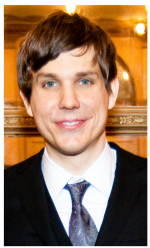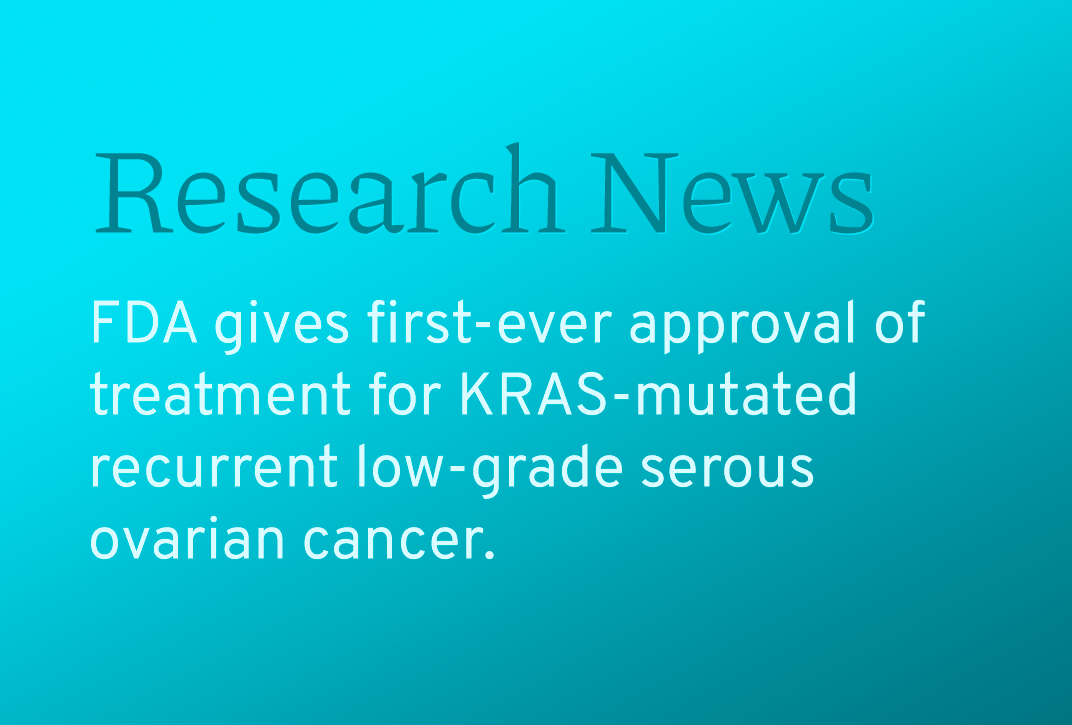
Dr. Gregory Motz is a 2011 Ann Schreiber Program of Excellence Grantee.
In this interview with OCRF’s Sarah DeFeo, Dr. Motz discusses his research, what motivated him to focus his efforts on ovarian cancer, and what it means to receive a grant from OCRF.
Sarah DeFeo: Tell me about yourself. Did you know you always wanted to be a scientist?
Gregory Motz: I actually didn’t have a defining moment when I thought, “I want to be a scientist!” In school I took classes that I found interesting, and that I was good at. After college, I took a job in a research lab. I thought the work was really exciting and interesting. I wanted more responsibility, but you really need an advanced degree if you want to do your own work, so I went back to school and got my PhD.
SD: How did you become interested in ovarian cancer research?
GM: My move into the world of ovarian cancer was a serendipitous one. My PhD thesis itself focused on immunology—which is what I study now—but then I was interested in the lung. While I was working on my thesis, I learned that there was a lot of creative work being done to manipulate immune systems to attack diseases, and I thought it was amazing. I further realized that there are a lot of unique challenges with ovarian cancer, and it made me want to work on it. After I completed my PhD, I was looking for jobs and I saw there was a post-doctoral position available in Dr. George Coukos’ lab at the University of Pennsylvania. Now I am taking the same knowledge and technical expertise I developed working on the lung and am applying it to ovarian cancer. I couldn’t be happier! .
SD: How did you become interested in ovarian cancer research?
GM: My move into the world of ovarian cancer was a serendipitous one. My PhD thesis itself focused on immunology—which is what I study now—but then I was interested in the lung. While I was working on my thesis, I learned that there was a lot of creative work being done to manipulate immune systems to attack diseases, and I thought it was amazing. I further realized that there are a lot of unique challenges with ovarian cancer, and it made me want to work on it. After I completed my PhD, I was looking for jobs and I saw there was a post-doctoral position available in Dr. George Coukos’ lab at the University of Pennsylvania. Now I am taking the same knowledge and technical expertise I developed working on the lung and am applying it to ovarian cancer. I couldn’t be happier!
SD: Tell me about your research.
GM: My mentor, Dr. Coukos, has ongoing clinic trials with ovarian cancer patients, where he gives them a vaccine, collects cells that react to tumor, expands them in tissue culture, and then re-injects them back into patients. The idea is to increase the number of cells that react to the tumor. I thought that there might be a better way to do this whole process, because we weren’t enriching the cells at all. I came up with a trick that will allow us to enrich the cells that recognize the tumor after vaccine, in hope that they will work even better.
SD: How far away are we from trying this in actual ovarian cancer patients?
GM:My particular work will be done entirely in mice, but the key is that it will allow me to establish a proof of principle that this idea—enriching the tumor-reactive cells—will work. Once I can do it, I will be able to incorporate it very quickly into the clinical trials that our lab already has on-going. That’s what’s great about working as a part of this particular research team: we move things into the clinic very quickly. We have everything set up and ready to go, from patients to doctors. We don’t have to spend a lot of time waiting before we can start to work with it on patients.
SD: Do you believe cancer vaccines have great promise?
GM: Yes, definitely. Vaccines for cancer have come far, but there’s still work to be done. A prostate cancer vaccine is on the market, but it only gives a patient a few additional months of life. That’s good, but it’s not great. In general, vaccine trials haven’t yielded great results, relative to other methods but I think they just need to be improved. Using methods like the ones I’m proposing could significantly enhance the benefits of the vaccine. If we can improve the vaccines, then they could be a very useful tool because they are a uniquely individualized therapy that causes relatively few side effects for patients.
SD: How do you think this OCRF grant will help you?
GM: I was ecstatic to receive this grant—it is a really big deal for me. As a young researcher, I need to show that my ideas are viable, and that they will be recognized by funders like OCRF. This was the first time I’ve gotten this kind of grant. It really is going to help me gain more independence as a scientist, and to establish a track record which will help me get more funding for my research in the future. This OCRF grant is really essential seed money for me.
SD: Where do you see yourself in 5 years?
GM: I have a few more years of post-doctoral work ahead of me, but then I’d like to apply for a faculty position somewhere, and be an independent investigator with my own lab. I’m fortunate to be working in such a great lab with so many other researchers who are dedicated to ovarian cancer right now, so I just have to spend this time learning as much as I can, and develop all the skills I’ll need. I’m really excited about continuing to work in ovarian cancer and immunology—and this grant is absolutely going to help me achieve my goals.
Dr. Gregory Motz is a postdoctoral fellow in the laboratory of Dr. George Coukos at the University of Pennsylvania. He completed his doctoral thesis on the immune response in chronic obstructive pulmonary disease at the University of Cincinnati. He has since redirected his research interests to focus on the immune response in ovarian cancer. He is currently interested in cancer vaccines, barriers barriers to anti-tumor immunity, and angiogenesis in tumor immunology.


